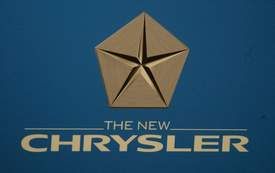That, according to Popular Mechanics magazine, is what Chrysler President Jim Press, formerly of Toyota, told a recent seminar. Press, however, did not say when Chrysler anticipated meeting that goal.
There’s a reason for being vague about the timetable. Though Chrysler undoubtedly hopes that hybrid powertrains will help it to meet the 2020 CAFE fuel economy standards, Chrysler has done little independent hybrid research and development. The hybrid development in which it has been involved has been part of the joint venture also involving General Motors and BMW, a project focused on the two-mode hybrid currently offered by GM in the Tahoe and upcoming on the light trucks offered by both GM and Dodge.
(more after the jump)
The action, however, in hybrid development is clearly going to focus on lithium ion batteries, an area in which Chrysler is currently a non-starter. This also appears to be a tough challenge technologically: Toyota was forced to abandon plans to use lithium ion batteries in the next-generation Prius when its supplier, Panasonic, couldn’t meet the development timetable.
In its defense, however, Chrysler may be gambling that the technology can be purchased, rather than created in-house. Outsourcing components which are hugely expensive to develop is an established business approach in the auto industry and even those car-makers which have put a lot of effort into hybrid development have been looking to specialized companies to develop the batteries used in the hybrid powertrains. Once the technological issues are resolved, it is likely that a number of suppliers may be able to provide whatever batteries may be required for Chrysler’s needs.
In all of this, there seems to be a certain diversionary purpose. Chrysler exhibited hybrid concept vehicles at the North American International Auto Show, even though production of any of those vehicles is pure fantasy. Chrysler, of late, appears to have been working very hard to speak of its future plans, perhaps to distract attention from its very real current financial problems.
Though Chrysler likely has little choice in waiting for others to do the pioneering work in hybrid and lithium ion development, the approach may be sound, even if involuntary. In fields in which technological innovation is rapid, the first manufacturer to market is not always the one that is ultimately the most successful. Indeed, the current emphasis of both General Motors and Honda on hybrid powertrains shows that neither company considers Toyota’s success with the Prius to give that company a lasting advantage in the marketplace.
That said, there remains good reason to take anything Chrysler executives say about the company’s long-range plans with a very large grain of salt. Cerberus, the owners of Chrysler, clearly bought a severely undercapitalized company in a very capital-intensive industry and was then blind-sided by the collapse of the speculative credit market. Cerberus remains, however, a capital fund which exists to make a profit by buying and selling companies, not owning them.

